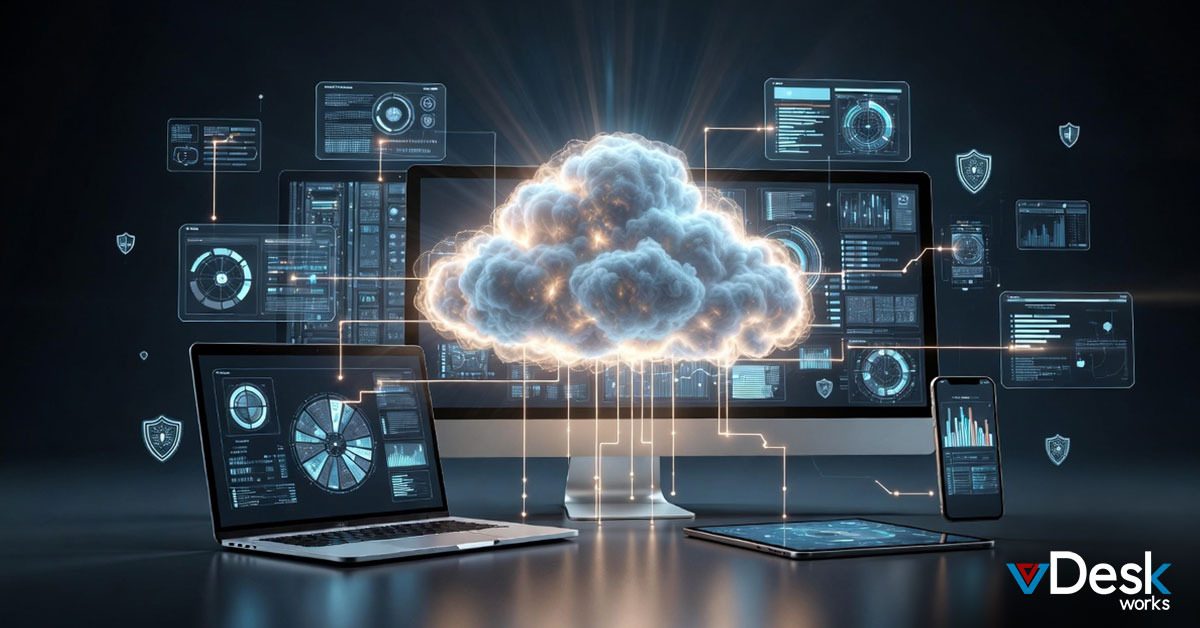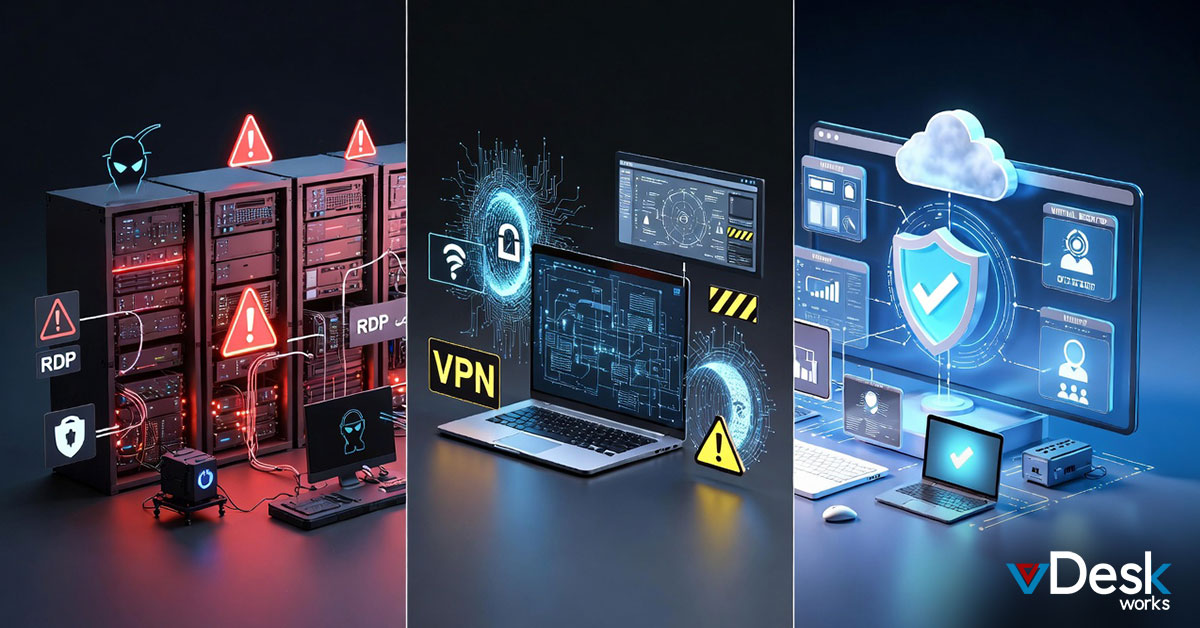It has not been that long since the concept of desktop-as-a-service or cloud-based desktop was first conceptualized. Cloud desktop computers are becoming increasingly popular these days, with more businesses choosing to go down this route. So, what is all the fuss about?
Let us explore why businesses are ditching their on-site hardware for cloud desktop computers.
Cloud Desktop Computers Explained
A cloud desktop computer is a desktop that is run from the cloud. Instead of having your own on-site hardware, which can be expensive to maintain, you rely on remote servers hosted by a third-party provider.
How do Businesses Choose the Best Cloud Desktop Computer?
Not sure if a cloud desktop computer is right for your business? Here are some factors that businesses take into consideration before making the switch:
1. Pay-Only-For-What-You-Use Module
Businesses first look for the pay-as-you-go module when choosing a cloud desktop computer. This type of billing system is very beneficial, as you are only charged for the resources that you actually use. On the other hand, with on-site hardware, you would need to make a large upfront investment, regardless of whether or not you actually use all the resources you have paid for.
2. Flexibility is the Key
One of the most significant benefits of cloud desktop computers is their flexibility. With on-site hardware, you are pretty much stuck with what you have. If you need more resources, then you would need to make a whole new investment. However, with a cloud desktop computer, you can simply scale up or down as needed.
3. A Centralized Management System
A centralized management system is key to success for businesses of all sizes. With cloud desktop computers, businesses can have all their data and applications in one place, which can be accessed by authorized personnel from anywhere in the world. This is something that you just cannot achieve with on-site hardware.
4. Disaster Recovery and Data Security
The thought of losing all your data can be a nightmare for any business. However, with a cloud desktop computer, you do not have to worry about this, as your data is stored off-site on remote servers. In the event of a disaster, you can restore your data from the backup. Additionally, your data is more secure as it is stored on servers typically located in data centers with high-level security.
5. Monitoring Should be Made Easier
How businesses monitor their network is another important factor when choosing a cloud desktop computer. With on-site hardware, businesses need to invest in expensive tools to help them monitor their network. However, with a cloud desktop computer, the provider takes care of this.
6. Remote Assistance and Technical Support
Businesses need to know that they can get help when they need it. With on-site hardware, if something goes wrong, then you would need to rely on your in-house IT team or an external contractor to come and fix the problem. However, you can simply contact your provider for remote assistance or technical support with a cloud desktop computer.
7. GPU-Backed VDI
Having a dedicated GPU can help tremendously with the performance of your desktop computer. You would not be able to get this with on-site hardware. Cloud providers typically have high-end servers that are equipped with GPUs, which can offer a much smoother user experience. Unlike traditional desktop computers, whose graphics-intensive applications can bog down performance, a cloud desktop computer with a GPU can handle it easily.
Businesses have widely adopted cloud desktop computers. Not only does it save you money, but it also offers a lot of flexibility and scalability. With so many benefits, it is no wonder that more and more businesses are making the switch. If you have been thinking about making the switch, we highly recommend you do so.
vDesk.works, a leading provider of cloud desktop computer services, offers a customized solution for businesses of all sizes. It has a lot of features that are designed to help businesses save time and money. These include the pay-only-for-what-you-use billing model, flexibility, a centralized management system, disaster recovery, and data security.
Contact us today to learn more about how we can help you take your business to the next level.


 Emma Carson
Emma Carson
















